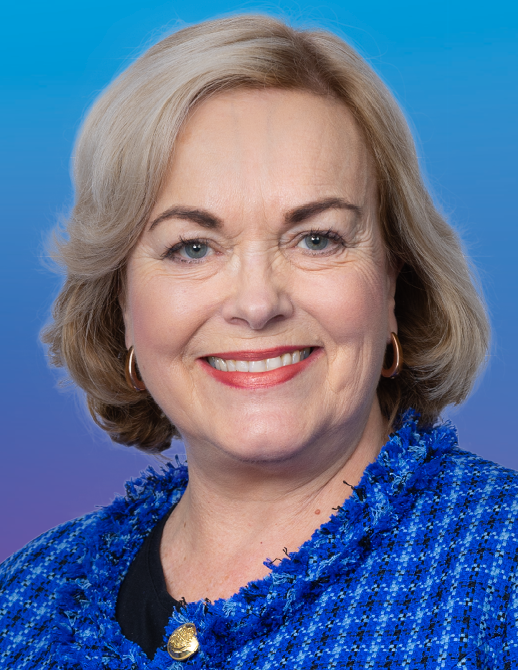Judith Collins Heads to Washington for High-Level Defence and Security Talks
“I look forward to meeting with my U.S. counterparts to share perspectives on the uncertain geostrategic environment we face,” said Collins.

- Country:
- New Zealand
Defence, GCSB, and NZSIS Minister Judith Collins will travel to Washington, D.C. this week for a series of high-level meetings focused on deepening defence and intelligence cooperation between New Zealand and the United States. Her visit comes at a critical moment, as both nations navigate an increasingly volatile global security environment marked by strategic competition, technological disruption, and regional instability.
"In a complex and deteriorating global environment, defence diplomacy that strengthens relationships and responds to new and emerging threats has never been more important," Collins said ahead of her departure.
Strengthening Defence Partnerships in a Changing World
During her visit, Minister Collins is scheduled to meet with several senior U.S. officials, including Secretary of War Pete Hegseth and Secretary for Homeland Security Kristi Noem, as well as senior figures from the Pentagon, State Department, and intelligence community.
These discussions will cover a range of pressing issues, including:
-
Strategic competition in the Indo-Pacific, particularly regarding maritime security and freedom of navigation.
-
Cybersecurity and intelligence-sharing cooperation between New Zealand and the United States.
-
Military interoperability and joint exercises under the Five Eyes partnership.
-
Defence capability development, including technology transfers, innovation, and modernization.
"I look forward to meeting with my U.S. counterparts to share perspectives on the uncertain geostrategic environment we face," said Collins. "We will also discuss how we can further bolster our long-standing defence and security partnership in pursuit of a peaceful and prosperous Indo-Pacific."
A Focus on the Indo-Pacific and Regional Security
The Indo-Pacific region has become a focal point of global strategic competition, with increased tensions in the South China Sea, concerns about North Korea's missile programs, and the growing importance of critical maritime routes.
New Zealand, while maintaining an independent foreign policy, has been stepping up its engagement with like-minded nations to promote regional stability, uphold international law, and respond to emerging security challenges such as cyber warfare, disinformation, and hybrid threats.
Collins' discussions in Washington are expected to reaffirm New Zealand's commitment to the rules-based international order, while exploring practical ways to enhance cooperation with the United States on defence modernization and strategic deterrence.
Enhancing Combat Capability and Interoperability
Minister Collins has emphasized that New Zealand is focused on building a more combat-capable defence force, one equipped to respond to evolving security challenges and operate seamlessly alongside allies.
"As New Zealand focuses on building a more combat-capable defence force with enhanced lethality and interoperability, it is important we discuss potential opportunities for closer collaboration with one of our closest partners," she said.
Recent initiatives under her leadership have included investments in modernizing the New Zealand Defence Force (NZDF), improving maritime surveillance, and upgrading intelligence and cybersecurity infrastructure under the GCSB and NZSIS portfolios.
Her Washington visit is expected to further explore defence technology cooperation, logistics support, and potential participation in regional training programs and joint operations.
Deepening the Strategic Partnership
New Zealand and the United States share a long history of defence cooperation, dating back to World War II and strengthened through the ANZUS Treaty and Five Eyes intelligence alliance. Although New Zealand adopted a non-nuclear stance in the 1980s, bilateral ties have steadily deepened in recent decades, particularly in areas such as peacekeeping, counterterrorism, humanitarian operations, and intelligence-sharing.
In recent years, both nations have also increased cooperation through multilateral frameworks like the Quad, AUKUS dialogue, and Pacific Islands Forum, focusing on shared priorities such as climate resilience, regional development, and security assistance.
A Visit Framed by Global Challenges
Collins' visit takes place against a backdrop of global instability — from ongoing conflicts in Ukraine and the Middle East, to escalating tensions over Taiwan, and the growing risks of cyberattacks on critical infrastructure. These evolving threats underscore the need for close coordination between trusted partners.
Her meetings in Washington are expected to reinforce New Zealand's role as a principled and reliable voice in the Indo-Pacific, balancing its independent foreign policy with strong partnerships built on shared democratic values.
Looking Ahead
Minister Collins' trip signals New Zealand's determination to remain an active contributor to regional and global security. By reinforcing ties with the United States, New Zealand aims to strengthen its defence readiness, expand cooperation in cutting-edge technologies, and ensure that its armed forces can meet the challenges of a fast-changing world.
Her engagements this week are expected to lay the groundwork for deeper bilateral defence initiatives and continued strategic dialogue — a reflection of New Zealand's growing role in shaping a stable, secure, and resilient Indo-Pacific region.
ALSO READ
-
England Aims to Shine Against New Zealand in Women's World Cup Finale
-
Showdown at the Women's World Cup: England vs. New Zealand
-
India's Smriti Mandhana and Pratika Rawal Shine in WC Victory Over New Zealand
-
Thrilling Cricket Clash: New Zealand Women vs. India
-
India beat New Zealand by 53 runs to qualify for semifinals of ICC Women's World Cup.









